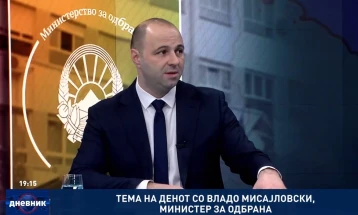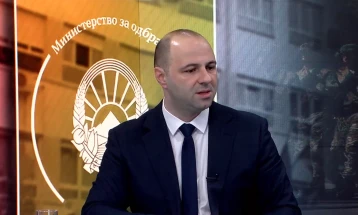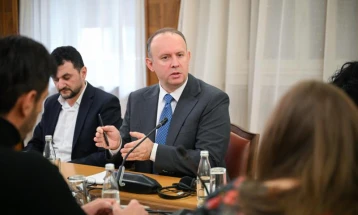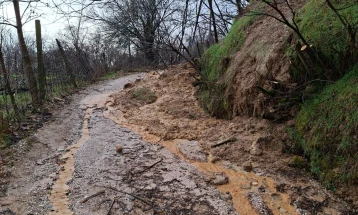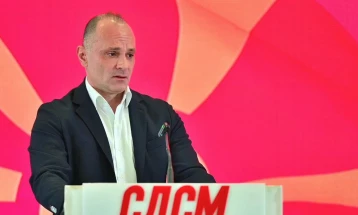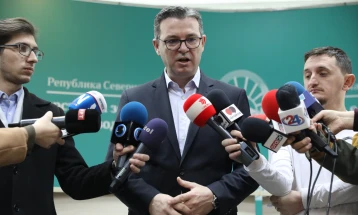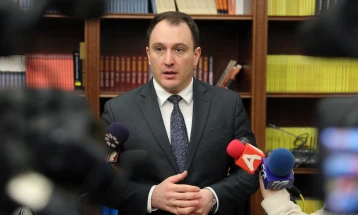Presentation of study on Russian propaganda, influence and disinformation in North Macedonia
- There is a large volume of Russian propaganda, influence and disinformation in North Macedonia, through multichannel messaging, repetitive and without objectivity. The Russian influence operations aim to incite divisions in society, undermine trust in institutions and media and disturb the population, show the findings of the study “One Year of Russian Aggression on Ukraine – Russian Propaganda, Influence and Disinformation in North Macedonia” presented Friday by Citizens’ Association MOST.
- Post By Angel Dimoski
- 14:38, 28 July, 2023
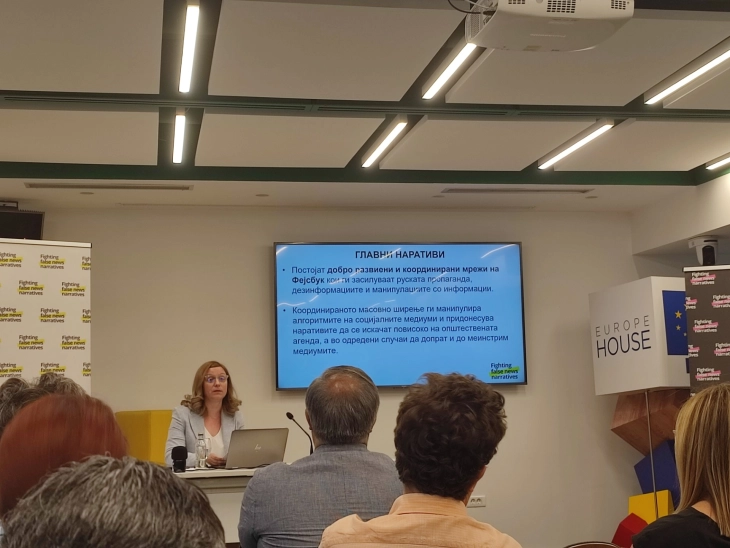
Skopje, 28 July 2023 (MIA) – There is a large volume of Russian propaganda, influence and disinformation in North Macedonia, through multichannel messaging, repetitive and without objectivity. The Russian influence operations aim to incite divisions in society, undermine trust in institutions and media and disturb the population, show the findings of the study “One Year of Russian Aggression on Ukraine – Russian Propaganda, Influence and Disinformation in North Macedonia” presented Friday by Citizens’ Association MOST.
The editor of the study, Rosana Aleksoska, said the study was created in the period between March 1, 2022 and February 28, 2023, during which more than 4.000 articles and 10.000 Facebook posts were identified and analyzed.
“The study uncovered mass reporting and presence of Kremlin’s representatives in North Macedonia’s online space, using Russian state-controlled media as sources in articles, pro-Russian messages from politicians in the region who are also Russian allies, as well as several cases of coordinated, mass dissemination of content on Facebook, through a well-established and coordinated pro-Russian infrastructure… It seems that a large portion of websites simply publish Russian officials or media controlled by Russia, even though they often lie… The media should be aware that words are weapons in the hands of the Kremlin for spreading disinformation,” said Aleksoska.
According to the study, the Russian influence in the country is in line with the concept of so-called “sharp power”, especially through the use of the church and promotion of Slavic-Orthodox brotherhood – a narrative which, said Aleksoska, has influenced the emotions of the people in the country. At the same time, said Aleksoska, they also used the complex, multi-ethnic history of the region to cause divisions in the country and the Balkans.
“The Russian influence pulls the population to this concept and implies that we have nothing in common with the western free world, which, is absolutely incorrect. This is one of the ways in which resistance to the European Union and NATO is being incited as well. This narrative was further promoted through the visits of religious representatives and joint religious ceremonies, which represents a perfect example of an information operation,” added Aleksoska.
The promotion of Russian propaganda, said Aleksoska, was noted on anonymous websites registered on foreign domains.
“The study showed there are well-developed and coordinated networks on Facebook that amplify the Russian propaganda and disinformation. These networks promote a far right and nationalist ideology which contributes to the promotion of nationalist, xenophobic and illiberal content which, in turn, causes further divisions… The volume, frequency and intensity of the narratives show that North Macedonia and the Balkans are high on the Kremlin’s agenda,” she said.
The study which Aleksoska said is the first of its kind in the country and the region, also comes with recommendations, the main of which is that there is a need for a “comprehensive institutional path for tackling Russian disinformation and malign influence in all areas of society.”
Asked if the study uncovered individuals in Macedonian society who are working for the Russian propaganda and disinformation, Aleksoska said that “there are also domestic actors who enable or amplify the influence, or convey the messages.”
“At the end of the study, as an annex, there is a catalog of narratives and cases in which domestic actors can be seen as well,” added Aleksoska.
Photo: MIA
